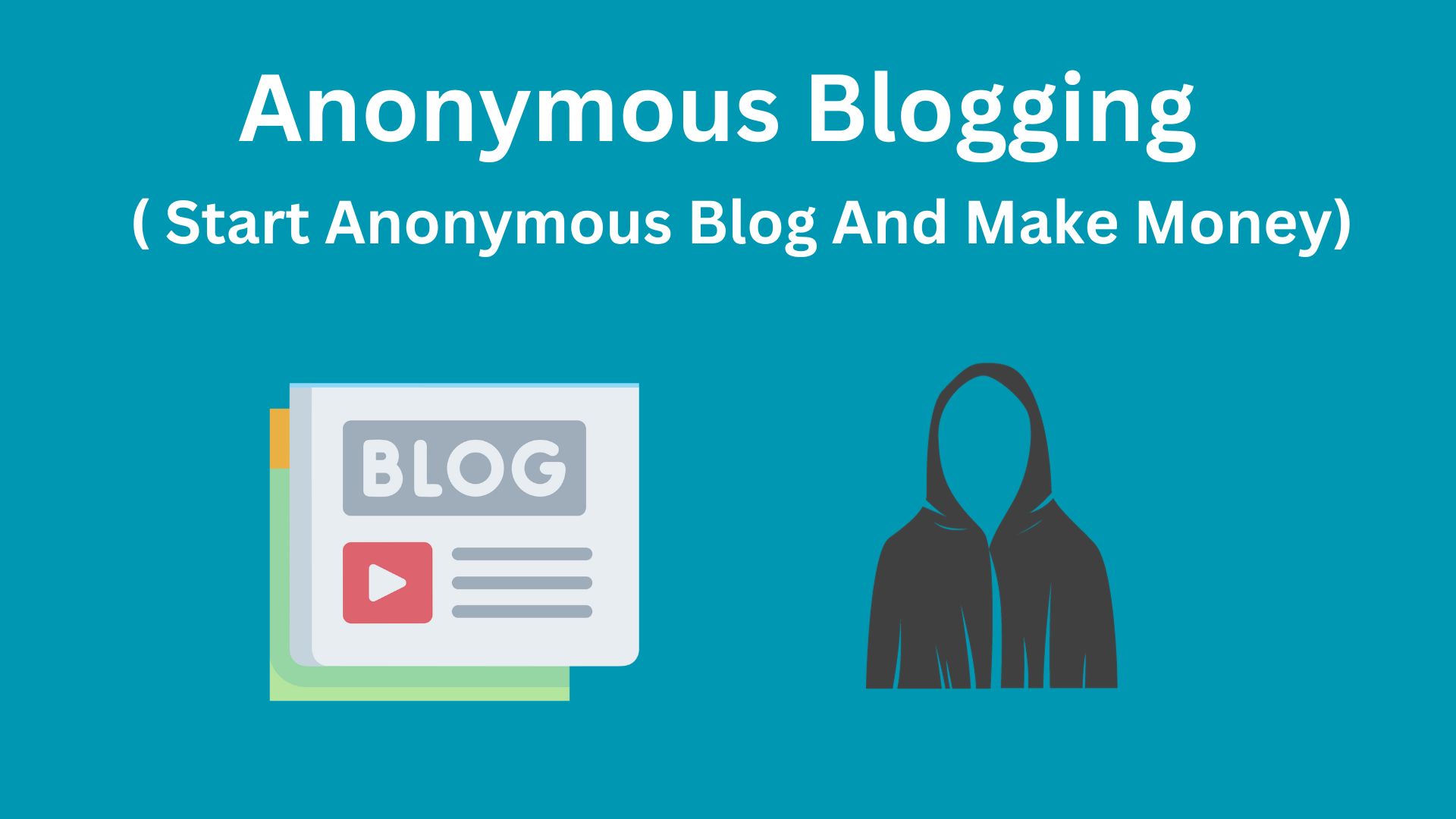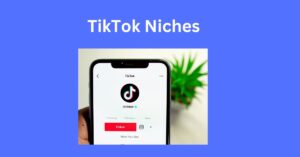Starting an anonymous blog allows you to share your thoughts and opinions online without revealing your real identity. Blogging anonymously comes with many benefits, and with the right blogging platform, you can even monetize an anonymous blog. This comprehensive guide will teach you everything you need to know about how to start an anonymous blog from scratch and make money blogging anonymously.
In this step-by-step guide, you’ll learn everything you need to know to start an anonymous blog from selecting the best blogging platform to choosing a domain name to monetizing your anonymous blog. Let’s dive in!
What is Anonymous Blogging?
Anonymous blogging refers to writing blog content without revealing your real identity. Instead of using your actual name, you take on a pseudonym or pen name when authoring posts and interacting with readers. This allows you to keep your personal identity private while publishing content online.
With anonymous blogging, any identifying details about the author are concealed, such as your name, location, occupation, background, and other personal info. The focus is entirely on the content itself, not the person behind it. Readers engage with your words and ideas without any preconceived notions about who you are.
You have full control over your chosen pseudonym and can shape your online persona however you wish. This freedom helps many anonymous bloggers feel more comfortable sharing their unfiltered thoughts, opinions, beliefs, and experiences.
Overall, anonymous blogging prioritizes privacy over publicity. It appeals to those who want to clearly separate their blogging presence from their real-world identity.
How to Start an Anonymous Blog
Starting an anonymous blog is very similar to starting a regular blog. The main difference is taking steps to conceal your real identity. Follow this guide to start your anonymous blog the right way:
Choose an Anonymous Blogging Platform
The first step is selecting an anonymous blogging platform that allows you to create a blog without providing personal details. Some of the best options include:
- WordPress – Allows you to host WordPress on your own domain. No identification required.
- Blogger– Google’s free blogging platform. Only an email is needed to sign up.
- Medium – Popular blogging and writing platform. You can write anonymously using just an email.
- Wix – Create a free anonymous blog with one of their domain privacy options.
- Tumblr– No ID required to create a Tumblr blog. You can remain totally anonymous.
WordPress is one of the best blogging platforms for anonymity since you can purchase a domain name without providing personal information.
Choose an Anonymous Domain Name
Your blog’s domain name will likely be the only identification on your site, so choose it carefully. Steer clear of using any part of your real name or revealing personal details. Some anonymous domain name ideas:
- Your blog name or pseudonym
- Initials
- Random words
- Numbers or letters
Also make sure to register your domain name privately so your personal details aren’t public.
Create an Anonymous Email Account
You’ll need an email address to create accounts for your blogging platform and domain name registration. To remain anonymous, create a new email account solely for your blogging activities using a service like ProtonMail or Hushmail that doesn’t require personal info.
Set Up Your Anonymous Blog
Once you have your platform, domain name, and email – it’s time to set up your anonymous blog! Most blogging platforms make it easy to create a blog anonymously:
- Blogger – Simply sign up for a Google account using your anonymous email.
- WordPress – Register your domain privately, then install WordPress without providing personal details.
- Medium – Sign up with your anonymous email. Add a pseudonym in account settings.
- Wix – Register using your anonymous email, no ID required.
Make sure to use your pseudonym when setting up accounts and profiles. Also be sure to turn off any location tracking or personalization options.
Start Blogging Anonymously!
Once your anonymous blog is set up, it’s time to start publishing content! Write about whatever topics you want while keeping your identity concealed. Interact with readers using your pseudonym.
The key is finding a balance between expressing yourself freely while protecting your anonymity. With these tips, you can confidently blog anonymously.
How to Make Money Blogging Anonymously
Wondering if you can monetize an anonymous blog? The answer is yes! You have several options to earn income from blogging anonymously:
Display Advertising
One of the easiest ways to make money from an anonymous blog is by joining an ad network like Google AdSense, Media.net, or Ezoic and placing ads around your content. You can get approved to run ads and earn revenue without providing any personal identification. The earnings will simply be deposited into your linked payment account.
Affiliate Marketing
Join affiliate programs related to your blog niche and promote their products within your content. When readers purchase through your links, you earn a commission. Affiliate networks like Amazon Associates, ShareASale, and Rakuten let you enroll using your anonymous email and pseudonym.
Sponsored Posts
Accept paid sponsorships from brands that are a good match for your blog and audience. Negotiate your rates and collaborate on sponsored content while keeping your identity private. Have payments deposited directly into your monetized account.
Sell Digital Products
Create premium digital products like eBooks, courses or membership sites that your audience would benefit from. Promote and sell your anonymous digital products directly on your blog and keep 100% of the profits.
Crowdfunding
Use crowdfunding platforms like Patreon or Buy Me a Coffee to allow readers to donate or pay for exclusive content. This can provide a steady stream of income from your loyal audience.
With the right monetization strategy, you can maintain anonymity while earning an income from your blog. Focus on providing value and leveraging your audience.
Pros of Anonymous Blogging
There are many potential benefits to blogging anonymously:
- Express yourself freely – Anonymity gives you the liberty to share your authentic perspectives without fear of judgment.
- Maintain privacy – Keep your personal life separate from your online presence.
- Cultivate mystique – An enigmatic persona can be more intriguing than blogging under your real name.
- Avoid controversy – Anonymity shields you from potential backlash for your views.
- Separation of professional and personal worlds – Keep work and personal blogs separate.
- Focus on content – With anonymity, your writing takes center stage rather than your identity.
- Creative freedom – Explore any topics you want without worrying what others think.
For many bloggers, the benefits of anonymity outweigh having their name attached to their writing.
Cons of Anonymous Blogging
Anonymous blogging also comes with some potential downsides:
- Lack of accountability – Anonymity can remove accountability for what you publish.
- No ownership of your work – You don’t get credit for your writing and ideas.
- Difficulty establishing authority – Harder to demonstrate expertise without an identity.
- Limited growth – Anonymity can hinder forming connections with readers.
- Risk of being “outed” – Anonymity could unravel if your identity is discovered.
- Missed opportunities – Publishing anonymously may limit some career prospects.
- Negative perceptions – Some view anonymous blogging negatively.
The loss of public recognition and personal branding are the main trade-offs with blogging anonymously versus using your real name.
Key Takeaways: Blogging Anonymously
Blogging anonymously allows you to express yourself freely online without revealing your identity. Here are some key takeaways:
- Choose an anonymous blogging platform like WordPress or Medium where you can create an account without providing personal information.
- Register your blog’s domain name privately and use an anonymous email account.
- Use a pseudonym instead of your real name when setting up your blog.
- Enhance anonymity by using a VPN, not sharing personal details, and disabling tracking.
- Monetize your anonymous blog through ads, affiliate marketing, sponsored posts, digital products, and crowdfunding.
- Find a balance between maintaining anonymity and cultivating readership and authority.
- Blogging anonymously gives you creative freedom but prevents taking credit for your work.
An anonymous blog allows you to write about your interests while keeping your identity private. With the right strategies, you can also earn income blogging anonymously.
More Articles For you:
- 50 Profitable Fashion Niche Ideas For Fashion Bloggers
- Fiverr Affiliate Program Review: How to Make Money Promoting Fiverr Services
- Top 15 Best Online Jobs for Housewives Sitting at Home
- 10 Best CPA Networks for Beginners
- Best Online Form Filling Jobs Without Investment With Daily Payment
Frequently Asked Questions About Blogging Anonymously
How do you start an anonymous blog?
To start an anonymous blog:
- Choose an anonymous blogging platform like WordPress, Medium or Blogger.
- Register an anonymous domain name and email account.
- Set up your blog using your pseudonym and anonymous credentials.
- Enhance anonymity by using a VPN, not sharing personal details, and disabling tracking.
- Start publishing content anonymously!
What are the benefits of blogging anonymously?
Some benefits of blogging anonymously include:
- Expressing yourself freely without judgement
- Maintaining privacy and separating personal/professional lives
- Avoiding controversy or backlash
- Cultivating mystique and intrigue
- Focusing on content quality rather than identity
What are the risks of blogging anonymously?
Risks of anonymous blogging include:
- Inability to take credit for your work
- Lack of accountability
- Difficulty building a personal brand
- Limited growth and exposure
- Risk of being “outed” if anonymity is compromised
Can you make money blogging anonymously?
Yes, there are many ways to monetize an anonymous blog including display ads, affiliate marketing, sponsored posts, digital products, crowdfunding and more. The key is providing value to earn an audience that will support your monetization approaches.
What blogging platforms allow anonymous blogging?
Some blogging platforms that allow anonymous blogging are WordPress, Blogger, Medium, Tumblr, Wix and more. Look for options that don’t require personal identification to sign up and create a blog.
How do you stay anonymous when blogging?
Tips to stay anonymous when blogging:
- Use a pseudonym instead of your real name
- Don’t share any identifying details
- Purchase your domain name privately
- Use an anonymous email address
- Enable privacy options and disable tracking
- Use a VPN to mask your IP address
- Interact anonymously with commenters




